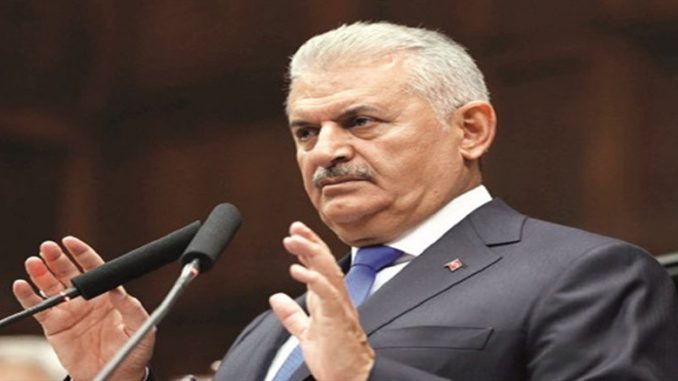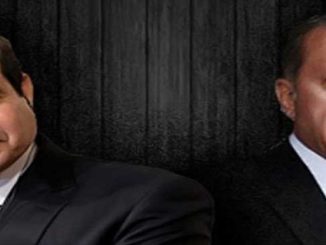
Turkish Prime Minister Binali Yildirim dismissed claims Yes vote would end up dividing Turkey
Yildirim dismissed claims a Yes vote would end up dividing Turkey.
In remarks made during the ruling Justice and Development (AK) Party’s parliamentary group meeting in Ankara on Tuesday, he blamed terror groups such as the PKK and the Fetullah Terrorist Organization for trying to split the country.
Recalling the hard times Turkey went through in 2016, including the July 15 defeated coup, Yildirim said Turkey was now back on track after it learnt its lesson from last year.
“Those planning to darken the future of Turkey are doomed. No power can now block Turkey’s rise. Turkey has taken very firm steps. Despite everything it stays stable, no doubt!” he added.
“They said no to whatever contributed to Turkey’s stable progress. Now they have started a campaign to block the transformation of a democratic Turkey,” he said.
He also praised Turkish people living abroad who were expected to vote Yes in the referendum. Yildirim said the Yes campaign will be embraced from Germany to Turkey’s northeastern border province of Kars.
Constitutional reform has been under discussion since then-Prime Minister Recep Tayyip Erdogan was voted president in August 2014.
The 18-article bill would hand wide-ranging executive powers to the president and abolish the prime ministerial post. The president would also be allowed to retain ties to a political party.
Other changes would see the minimum age for parliamentary candidates reduced to 18 from 25 and the number of deputies would also rise to 600. Simultaneous parliamentary and presidential elections for a five-year term would be held in November 2019 under the new constitution.
Turkish MHP supports the constitutional reform
The support of Turkish Nationalist Movement Party (MHP) allowed the constitutional reform bill to pass through parliament last month with 339 votes in favor — nine more than needed to put the proposals to a referendum.
MHP leade Devlet Bahçeli also reiterated his party’s “unconditional support” for a return of the death penalty following July’s attempted coup and criticized the governing Justice and Development (AK) Party for dragging its feet on bringing back hanging.
Ali Bayramoğlu is an academic and political commentator, said that, If the executive presidency obtains popular approval, it will open the door not only to a model of an obedient society and authoritarian governance, but also lead to new institution-building processes in line with conservative values.
For Erdogan, who has ruled Turkey as prime minister and president for 14 years, a “yes” vote will mean a chance to remain at the helm until 2029 under a provision that calls for simultaneous presidential and general elections in 2019, the year his current term ends, with a president eligible to serve two five-year terms. If this prospect materializes, Turkey will descend into a one-man regime.
If the “no” voters prevail, Erdogan will suffer his first major defeat after having won every political battle since 2002. For Erdogan’s political career, this would mark the beginning of its descent, and in terms of political trends, it would represent the rise of dissent.
The climate and balance within the AKP, and in the country in general, would be in for profound changes. Rejection of the referendum would inevitably broaden the opposition’s space and strengthen its legitimacy.



